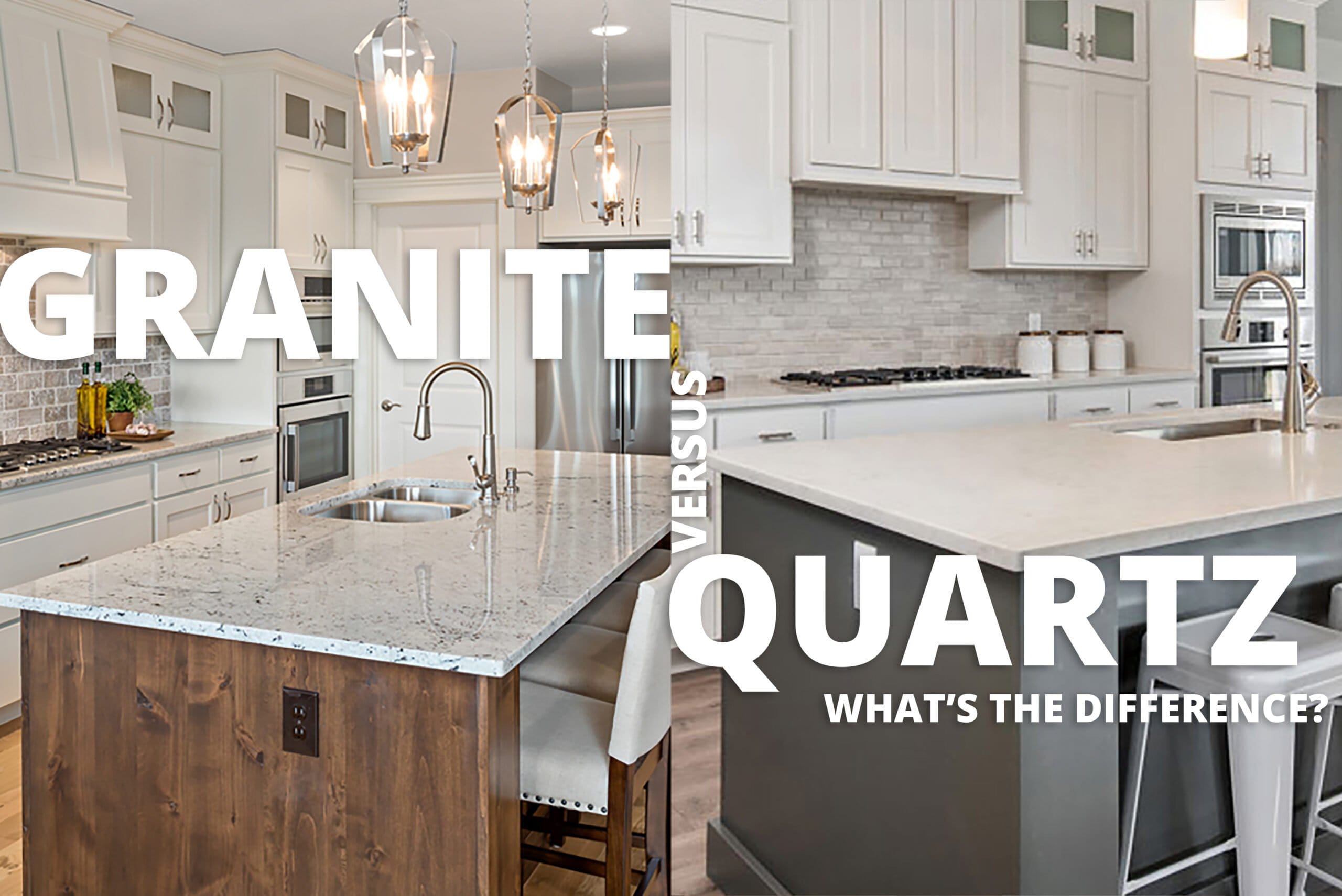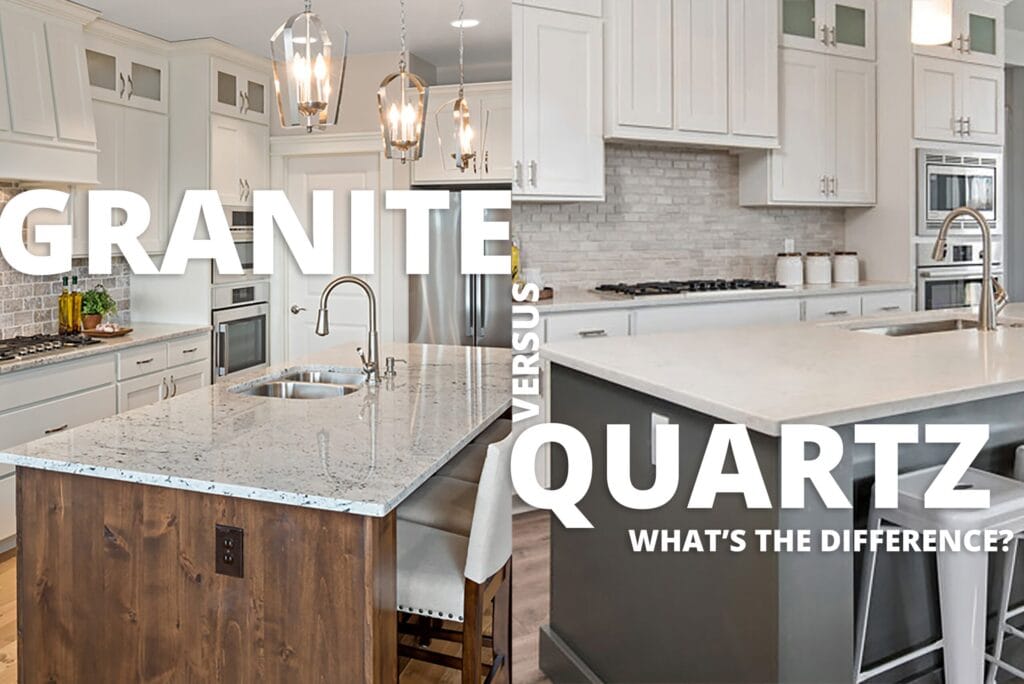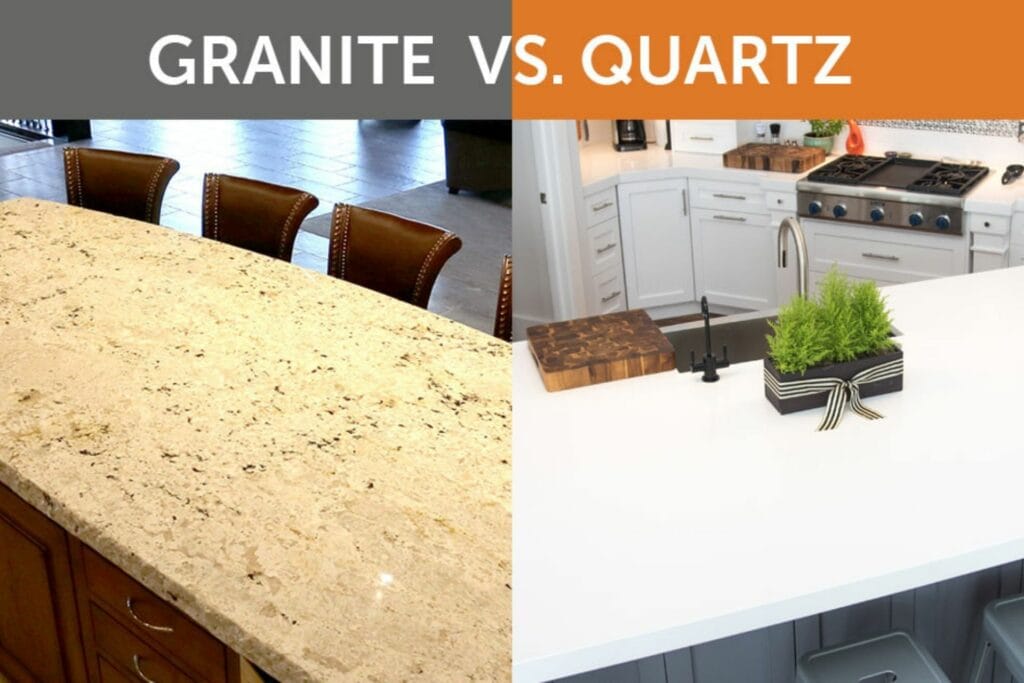
the most important decisions you’ll make is choosing your countertop material. Among the most popular choices are granite countertops and quartz countertops.
When planning a new kitchen or bathroom, one of the most important decisions you’ll make is choosing your countertop material. Among the most popular choices are granite countertops and quartz countertops. Both are durable, stylish, and available in a wide range of colors and patterns — but they also have key differences that may affect your choice.
In this guide, we’ll compare granite and quartz countertops side-by-side, covering style, maintenance, cost, and performance, so you can confidently select the best surface for your home.

Understanding Granite Countertops
Granite is a natural stone formed over millions of years deep within the Earth’s crust. It is quarried in large blocks, cut into slabs, and polished for installation. No two slabs are exactly alike, making every granite countertop unique.
Common Types of Granite Countertops:
- Black granite countertops – Sleek and dramatic, perfect for modern kitchens.
- White granite countertops – Bright and airy, ideal for small kitchens.
- Brown granite countertops – Warm and traditional, great for rustic or farmhouse styles.
- Blue pearl granite countertops – Striking and unique, a true design statement.
- Polished granite countertops – Glossy finish that enhances the stone’s natural colors.
- Honed granite countertops – Matte finish for a softer, contemporary look.

Understanding Quartz Countertops
Quartz countertops are engineered stone surfaces made from crushed quartz crystals mixed with resin binders and pigments. This manufacturing process allows for consistent patterns and colors, unlike granite’s natural variation.
Popular Features of Quartz:
- Non-porous, making it resistant to staining.
- Available in a wide range of colors, including those that mimic marble or granite.
- Consistent patterning for a uniform look.
Granite vs Quartz Countertops: Key Differences
1. Appearance
- Granite: Each slab is unique, featuring natural veining and speckling. Best for those who love one-of-a-kind designs.
- Quartz: More uniform patterns, great for modern designs or matching multiple slabs seamlessly.
2. Durability
- Granite: Highly durable but can chip if hit hard. Requires sealing to maintain stain resistance.
- Quartz: Even more resistant to scratches and stains due to its non-porous surface. Does not require sealing.
3. Maintenance
- Granite: Needs periodic sealing (once a year is common). Use mild, pH-neutral cleaners.
- Quartz: Virtually maintenance-free — just wipe clean with soap and water.
4. Heat Resistance
- Granite: Naturally heat resistant — hot pans can be placed directly on the surface briefly.
- Quartz: Heat can damage resin binders; always use trivets.
5. Cost
Both materials can vary widely in price depending on quality, origin, and installation complexity.
Pros and Cons of Granite Countertops
Pros:
- Unique natural beauty
- High heat resistance
- Adds resale value to the home
Cons:
- Requires periodic sealing
- Slightly more prone to chips
- Natural variations can make matching slabs difficult
Pros and Cons of Quartz Countertops
Pros:
- Non-porous and stain-resistant
- Low maintenance
- Wide variety of colors and patterns
Cons:
- Less heat resistant than granite
- More expensive in some cases
- May lack the “natural stone” authenticity
Which Is Better for Kitchens and Bathrooms?
- Granite kitchen countertops are ideal for homeowners who love natural variation and heat resistance.
- Quartz works well in busy kitchens or bathrooms where low maintenance and stain resistance are priorities.
Your choice will depend on your lifestyle, design preference, and budget.
Special Considerations for Outdoor Kitchens
If you’re designing an outdoor kitchen, granite is usually the better choice. It handles UV exposure and temperature changes better than quartz, which may discolor in direct sunlight.
Maintenance Tips for Both Surfaces
- For granite: Seal regularly, clean spills quickly, and avoid acidic cleaners.
- For quartz: Avoid placing hot pans directly and use cutting boards to protect from scratches.
Learn more:
- What are prefabricated granite countertops (definition/style)?
- What is a good substitute for granite countertops?
Where to Buy and Install
- Top-rated granite countertop installers near me
- Local granite fabricators
- Granite countertop showroom [location]
- Wholesale granite countertops suppliers
And don’t forget to consider your installation logistics — a material handling trolley can be essential for moving heavy slabs safely.
Final Thoughts
Both granite countertops and quartz offer beauty, durability, and value. If you love the uniqueness of natural stone and don’t mind a little maintenance, granite may be your best choice. If you prefer a low-maintenance, uniform surface, quartz could be the way to go.
Either way, you’ll be investing in a stylish, long-lasting surface that enhances your home’s beauty and function.
If you’d like, I can now add a comparison table and keywo

